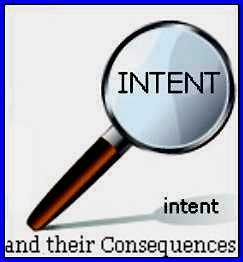Mischke v. Mischke Estate 2021 BCSC 1404 dealt with a S. 151 WESA application for leave by a beneficiary of their mother’s estate to commence an action on behalf of the estate against the executor and another sibling for alleged breach of trust for missing funds while the executor and the sibling handled a power of attorney for the deceased.
The Court refused the application on the basis that no arguable case had been presneted and reviewed the criteria for a S. 151 application.
The Law- S. 151 WESA
A beneficiary under a will who is of the view that litigation should be brought on behalf of an estate in a situation where the executor is unwilling to do so may seek leave of the court to commence proceedings under s. 151 of the WESA.
The relevant portions of this provision read as follows:
151 (0.1) In this section, “specified person” means a beneficiary, an intestate successor or a person who may commence a proceeding claiming the benefit of Division 6 [Variation of Wills] of Part 4 [Wills].
151 (1) Despite section 136 [effect of representation grant], a specified person may, with leave of the court, commence proceedings in the name of the specified person and on behalf of the estate of the deceased person
(a) to recover property or to enforce a right, duty, or obligation owed to the deceased person that could be recovered or enforced by the personal representative, or
(b) to obtain damages for breach of a right, duty or obligation owed to the deceased person.
151(3) The court may grant leave under this section if
(a) the court determines the specified person seeking leave
(i) has made reasonable efforts to cause the personal representative to commence or defend the proceeding,
(ii) has given notice of the application for leave to
(A) the personal representative,
(B) any other specified persons, and
(C) any additional person the court directs that notice is to be given, and
(iii) is acting in good faith, and
(b) it appears to the court that it is necessary or expedient for the protection of the estate or the interests of a specified person for the proceeding to be brought or defended.
In Malecek v. Leiren, 2021 BCSC 1052 at para. 40, Mr. Justice Giaschi conveniently set out the five conditions that must be satisfied by an applicant in order to obtain leave to bring a s. 151 WESA beneficiary action:
- the applicant must be a “specified person” within the meaning of the section;
- reasonable efforts must have been made to have the executor commence the proceedings;
- notice must have been given to the required persons;
- the applicant must be acting in good faith; and,
- the court must be satisfied it is necessary or expedient for the proceedings to be brought.
Efforts to Have the Executor Bring the Proposed Proceeding
In situations where proposed beneficiary proceedings are to be brought against executors, it is not self-evident what would constitute “reasonable efforts” to cause executors to start such actions against themselves. This issue was canvassed at some length in Fry v. Fry, 2018 BCSC 1018 at paras. 49 to 58. The s. 151 WESA applicant in that case had essentially argued that when an executor is intended to be a defendant in the proposed proceeding and is therefore in an inherent conflict of interest, it would be nonsensical to require the applicant to first try to persuade the executor to commence such litigation. However, based on the wording of s. 151 and case law that has interpreted a similar provision in corporate legislation, Mr. Justice Milman concluded that the applicant must still give the executor reasonable notice of the request together with details of the nature of the claim that the applicant wishes the executor to pursue. At para. 57, he wrote:
In summary, I conclude that in a case such as this where the personal representative is an intended defendant, the applicant must, before commencing an action in the name or on behalf of the estate or seeking leave to do so:
(a) inform the personal representative of the specific allegations being made; and
(b) request that the personal representative take, or allow others to take, specific remedial action to address them.
While the precise form that such a notice and request for action requires will vary and is dependent upon the context, failure to make a reasonable effort to meet this requirement will be fatal to the application (Fry v. Fry, 2018 BCSC 1018, at para. 58).
The Applicant’s Good Faith
The s. 151 WESA applicant has the burden to demonstrate that the proposed proceeding is being brought in good faith. Evidence of the applicant’s motivation must be presented, as good faith cannot be presumed. Once again, Fry v. Fry, 2018 BCSC 1018, is instructive:
The requirement in s. 151(3)(a)(ii) that the applicant be acting in good faith was explained by Pearlman J. in the context of an application for leave to commence a derivative action in Luft v. Ball, 2013 BCSC 574, as follows at para. 46:
The applicant bears the onus of establishing that it is acting in good faith in bringing derivative proceedings. Good faith is not presumed; the applicant must adduce evidence to establish good faith: Creative Realty Corp. v. 333 Terminal Holdings Ltd., 2011 BCSC 638 at para. 19. The test of good faith is whether the action is brought primarily for the purpose of pursuing the claim on the company’s behalf. The factors to be considered include the applicant’s belief in the merits of the proposed claim, existing disputes between the parties, and alleged ulterior motives: Bennett v. Rudek, 2008 BCSC 1278 at para. 46. As Adair J. observed in Lost Lake Properties Ltd. [Lost Lake Properties Ltd. v. Sunshine Ridge Properties Ltd., 2009 BCSC 938] at para. 56, ultimately good faith is a question of fact to be determined on all of the evidence and the particular circumstances of the case.
The fact that the applicant may be motivated by self-interest will not disqualify that person from obtaining leave under s. 151 of the WESA. To the contrary, in light of the wording of s. 151(3)(b), good faith can be shown with evidence that the applicant is genuinely pursuing the proposed litigation for the benefit of the estate or out of the person’s own self-interest (Jiang v. Piccolo, 2020 BCSC 1584 at para. 69).
As with the “reasonable efforts to have the executor act” criterion, however, should the applicant fail to establish that the proposed proceeding is bona fide, leave to commence it will not be granted regardless of whether it may otherwise be meritorious.
Necessity or Expediency of the Proposed Proceeding
Section 151(3)(b) of the WESA provides that leave to bring a beneficiary proceeding can only be granted if it appears to the Court that it is “necessary or expedient for the protection of the estate or the interests of a specified person…”. Guidance on how to apply this provision was set out by Madam Justice Gray in Bunn v. Bunn Estate, 2016 BCSC 2146 at paras. 50-51:
A proceeding may be “necessary” under s. 151 of WESA if the personal representative is unwilling or unable to proceed. It may be “expedient” if it is in the best interests of the estate.
In this case, the applicant is a beneficiary of the Estate and seeks the order under s. 151 of WESA on the basis that the claim, if successful, will increase the value of the Estate. In such a case, in my view, to satisfy the court that it should exercise its discretion to grant leave to commence litigation on behalf of the estate, the applicant must show not only that there is an arguable case, but also that the potential relief in the action is sufficient to justify the inconvenience to the estate of being involved in the action, and that proceeding is overall in the best interests of the estate. In my view, that must involve a consideration of the costs of proceeding, including the potential of a costs award against the estate if it fails. Further, in my view, in determining whether the proposed lawsuit appears to be in the best interests of the estate, the court can consider the strength of the proposed claim based on a limited weighing of the evidence.
In other words, when considering whether leave should be granted on a s. 151 WESA application, it is permissible and expected for the Court to assess the evidentiary material tendered by the parties by performing a “limited weighing” of this evidence.
However, the Court cannot decide the merits of the case or deal with issues of credibility (Hoggan v. Silvey, 2021 BCSC 971, at para. 24). The assessment relates in particular to three interrelated questions: (1) is there an arguable case; (2) does the potential relief/recovery justify the time and expense of the proposed action; and (3) is the proceeding in the overall best interest of the estate (Malecek v. Leiren, 2021 BCSC 1052 at para. 44).




